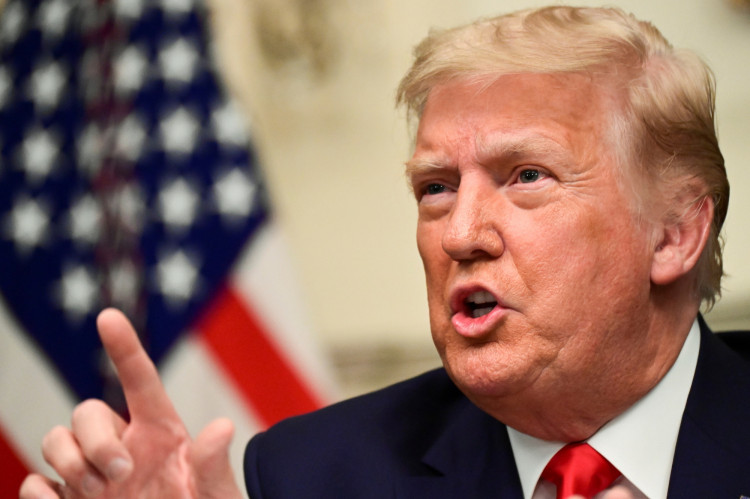As political alliances shift and loyalties are tested, the landscape of the Republican party in Florida undergoes a seismic shift ahead of the 2024 Presidential race. Once a staunch ally of Governor Ron DeSantis, a cadre of GOP legislators and operatives in the Sunshine State are realigning with former President Donald Trump, signaling a potential power rebalance within the party.
In a noteworthy turnaround, five Republican legislators have pivoted their support from DeSantis to Trump, a move seen as both an endorsement of Trump's continued influence and a critique of DeSantis's leadership. The shifting allegiances were starkly highlighted at a recent Florida Republican "freedom summit," where the endorsements were revealed amidst the fanfare of the party faithful.
Trump's tactical gains have come, in part, by leveraging internal discord within Florida's GOP and by capitalizing on a wave of dissatisfaction with DeSantis's approach among party members. The discontentment has been fueled by policy decisions and political maneuvers that have isolated some within the party, including key Jewish community figures and legislators frustrated by what they see as insufficient action against antisemitism.
Trump's strategic positioning in Florida was further underscored when Senator Rick Scott publicly aligned with him, and state Rep. Randy Fine, previously a DeSantis backer, criticized the governor for not taking a stronger stance against extremism. Meanwhile, Trump continues to draw crowds and dominate media attention with counter-events, like his rally in Hialeah planned simultaneously with the GOP debate in Miami - a debate he is notably skipping.
The realignment is not limited to elected officials. A slew of former DeSantis staffers, including some with close ties and intimate knowledge of his political operation, have joined forces with Trump's campaign. Among them is Susie Wiles, a seasoned political operative who has had a hand in both camps and is now a top adviser for Trump. This trend has raised questions about the strength of DeSantis's network in Florida, a crucial battleground state and a significant delegate prize in the nominating process.
Despite these challenges, DeSantis's camp remains confident, highlighting his results-oriented leadership and hinting at a robust fighting spirit that resonates with voters. But with Trump's apparent lead in the early nominating states and national polls, DeSantis's bid for the White House appears increasingly tenuous.
Behind the scenes, the Florida governor's office continues to push forward with state business, rallying the GOP-controlled legislature to address issues such as sanctions against Iran and the state's insurance crisis. Yet, these efforts seem to clash with the personal vendettas and political machinations playing out on the larger stage, suggesting that the road to the 2024 nomination may be fraught with intraparty conflicts and the reverberations of past grudges.
The evolving political drama in Florida is not just a tale of two high-profile Republicans vying for power but also a broader reflection of the fractures and factions within the party itself. As the state's GOP figures align and realign, the eventual impact on the Presidential race remains a subject of intense speculation and intrigue.






